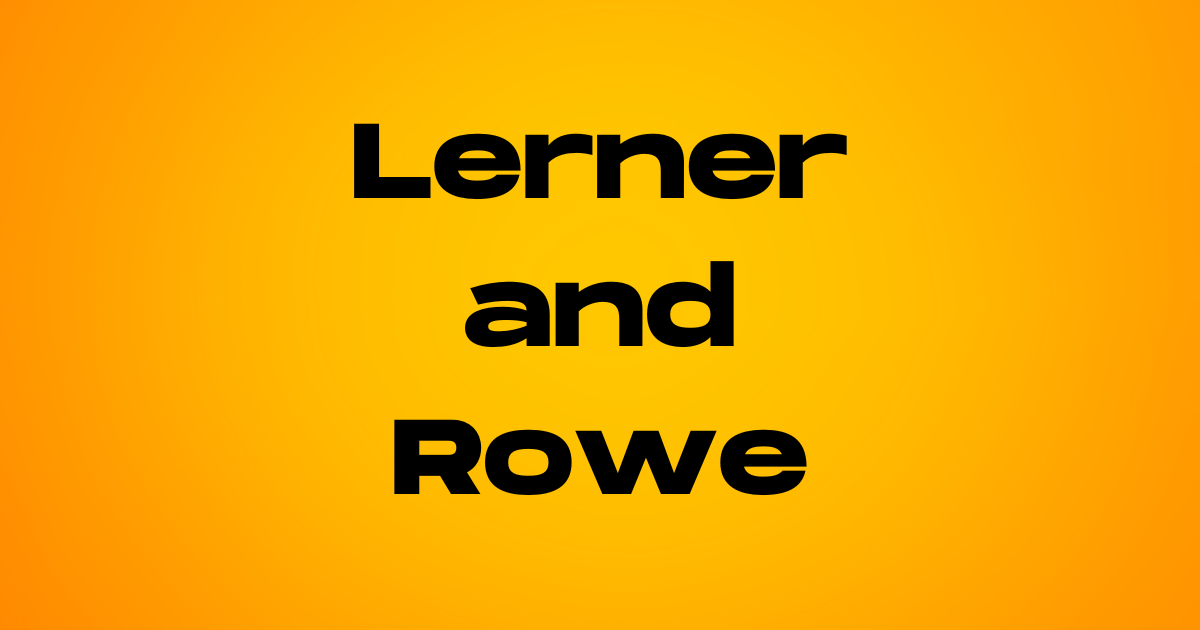In the world of sales, mastering high ticket closing is often seen as the pinnacle of achievement. It involves selling products or services that command a high price tag, typically requiring a more sophisticated sales approach and a deeper understanding of customer needs. High ticket closing isn’t just about closing a sale; it’s about building relationships, understanding market dynamics, and employing strategic techniques to successfully persuade high-value clients to make significant investments.
High ticket closing refers to the process of finalizing a sale for a high-value product or service. Unlike traditional sales where the transaction value may be lower, high ticket closing deals with offerings that require substantial financial commitment from the buyer. This could range from luxury goods and premium services to high-end consultancy and investment opportunities. The key challenge lies in convincing potential clients of the value proposition and overcoming their objections to secure the sale.
Mastering high ticket closing is crucial for sales professionals aiming to excel in competitive markets. It not only leads to higher commissions and revenue but also enhances the reputation and credibility of the closer. Moreover, successful high ticket closing builds long-term client relationships based on trust and satisfaction, which can lead to repeat business and referrals. In this article, we will delve deep into the strategies and techniques that can help you become proficient in high ticket closing, ensuring sustained success in your sales career.
Understanding High Ticket Sales
Definition of High Ticket Sales
High ticket sales refer to transactions involving products or services that are priced significantly higher than average market offerings. These transactions often require more time, effort, and skill to close due to the substantial investment required from the buyer. Examples include luxury cars, high-end real estate, bespoke financial services, and exclusive memberships.
Characteristics of High Ticket Products/Services
High ticket products or services typically possess unique attributes that justify their premium pricing. These may include superior quality, exclusive features, personalized service, or specialized expertise. The decision-making process for high ticket purchases is more complex and involves careful consideration of value, benefits, and return on investment (ROI) by the buyer.
The Role of a High Ticket Closer
Responsibilities of a High Ticket Closer
A high ticket closer plays a pivotal role in the sales process by guiding potential clients through the final stages of decision-making. Their primary responsibilities include understanding client needs, addressing concerns, presenting compelling offers, and ultimately securing the sale. They act as trusted advisors, ensuring that clients feel confident in their investment decisions.
Skills Required to Excel as a High Ticket Closer
To excel as a high ticket closer, one must possess a diverse set of skills beyond basic sales techniques. These include exceptional communication skills to articulate value propositions effectively, emotional intelligence to understand and address client motivations, and resilience to handle objections and rejections gracefully. Additionally, negotiation prowess, strategic thinking, and the ability to build rapport and trust are essential for success in closing high ticket deals.
Essential Traits of a Successful High Ticket Closer
Communication Skills
Effective communication lies at the heart of high ticket closing. A successful closer can articulate complex ideas clearly, listen actively to client concerns, and tailor their communication style to resonate with different personalities. Clear and persuasive communication builds confidence and trust, essential for convincing clients of the value of their investment.
Emotional Intelligence
Emotional intelligence enables a high ticket closer to empathize with clients, understand their underlying motivations, and respond to their emotional cues effectively. By demonstrating empathy and authenticity, closers can establish genuine connections with clients, fostering long-term relationships built on mutual respect and understanding.
Persistence and Resilience
High ticket closing often involves navigating multiple rejections and overcoming objections before securing a sale. Persistence and resilience are critical traits that enable closers to stay motivated and focused despite challenges. They learn from setbacks, adapt their strategies, and maintain a positive mindset to achieve their sales goals.
Developing a High Ticket Closing Mindset
Adopting a Positive Attitude
A positive attitude is foundational to mastering high ticket closing. It helps closers approach each interaction with optimism and enthusiasm, creating a conducive environment for productive discussions and negotiations. Positivity is contagious and can influence clients to perceive the sales process as an opportunity rather than a transaction.
Overcoming Fear of Rejection
Fear of rejection is a common barrier in sales, particularly in high ticket closing where the stakes are higher. Closers must develop resilience and recognize that rejection is not personal but an inherent part of the sales process. By reframing rejection as an opportunity to learn and improve, closers can persevere and ultimately achieve success.
Goal Setting for High Ticket Closing Success
Setting clear, achievable goals is essential for high ticket closers to stay focused and motivated. Goals should be specific, measurable, and aligned with both individual and organizational objectives. Regularly reviewing progress and celebrating milestones helps maintain momentum and drive towards continuous improvement.
Also Read: XCV Panel
Preparation: Research and Knowledge
Understanding the Product/Service
In-depth knowledge of the product or service being offered is fundamental to successful high ticket closing. Closers must understand its features, benefits, and unique selling points to effectively communicate its value to potential clients. This knowledge instills confidence and credibility, positioning the closer as a knowledgeable advisor.
Researching the Prospect
Researching prospects allows closers to tailor their approach based on client preferences, needs, and pain points. This includes understanding their industry, business objectives, and personal motivations for considering the purchase. Personalized interactions based on informed insights increase the likelihood of building rapport and securing the sale.
Market and Competitor Analysis
Analyzing market trends and competitor offerings provides closers with a competitive edge. By understanding market dynamics and how their product/service stands out, closers can highlight its advantages and address potential objections proactively. This strategic approach demonstrates market awareness and positions the offering as a superior choice for discerning clients.
Building Rapport and Trust
Importance of Building Rapport
Rapport is the foundation of successful relationships in high ticket closing. It involves establishing a genuine connection with clients based on mutual respect, understanding, and shared interests. Building rapport creates a comfortable and collaborative atmosphere where clients feel valued and are more receptive to the closer’s recommendations.
Techniques for Establishing Trust Quickly
Trust is essential for clients to feel confident in making significant investments. Techniques such as active listening, demonstrating expertise, and showcasing past successes build credibility and establish trust early in the sales process. Transparent communication and integrity reinforce trust, laying the groundwork for successful high ticket closing.
Effective Communication Techniques
Active Listening
Active listening involves fully concentrating on what the client is saying, understanding their perspective, and responding thoughtfully. By actively listening to client concerns, interests, and objectives, closers demonstrate empathy and gain valuable insights that inform their approach. This collaborative approach fosters meaningful dialogue and facilitates informed decision-making.
Asking Powerful Questions
Asking powerful questions helps closers uncover client needs, motivations, and potential objections. Open-ended questions encourage clients to elaborate on their challenges and aspirations, providing deeper insights that guide the closing strategy. Thoughtful questioning demonstrates genuine interest and encourages clients to reflect on their priorities, paving the way for personalized solutions.
Using Persuasive Language
Persuasive language involves framing messages in a compelling manner that resonates with clients’ emotions and rational decision-making processes. By highlighting benefits, outcomes, and value propositions clearly and persuasively, closers can influence clients’ perceptions and enhance their willingness to invest in high ticket offerings. Tailoring language to align with client priorities and aspirations reinforces the value of the investment.
Handling Objections in High Ticket Closing
Common Objections and Their Solutions
Objections are natural in high ticket closing and often revolve around concerns about cost, competition, or perceived risks. Closers should anticipate common objections and prepare proactive responses that address underlying concerns while reinforcing the value proposition. By addressing objections confidently and transparently, closers can alleviate client hesitations and move closer to securing the sale.
Strategies for Overcoming Price Objections
Price objections are among the most common challenges in high ticket closing. Closers can overcome price objections by emphasizing return on investment (ROI), demonstrating value through personalized benefits, and offering flexible payment options or incentives. Showing how the investment aligns with long-term goals and delivers tangible outcomes helps justify the price and alleviate client apprehensions.
The Art of Negotiation
Negotiation Techniques for High Ticket Sales
Negotiation is a critical skill in high ticket closing, enabling closers to reach mutually beneficial agreements that satisfy client needs and organizational objectives. Techniques such as anchoring, exploring options, and creating value through concessions enable closers to navigate negotiations effectively. Maintaining professionalism, flexibility, and a focus on win-win outcomes fosters trust and facilitates successful deals.
Win-Win Strategies in Negotiation
Win-win negotiation strategies aim to maximize value for both parties by identifying shared interests and exploring creative solutions. Collaborative problem-solving, exploring multiple alternatives, and prioritizing long-term relationships over short-term gains enhance the likelihood of reaching favorable agreements. By focusing on mutual benefits and fostering a spirit of cooperation, closers can achieve sustainable success in high ticket negotiations.
Closing the Deal
Recognizing Buying Signals
Recognizing buying signals is essential for timing the close effectively. Non-verbal cues, positive responses to trial closes, and expressions of commitment indicate readiness to proceed. By observing and interpreting buying signals accurately, closers can confidently transition to the closing stage and finalize the sale while maintaining momentum and client engagement.
Techniques for Closing the Sale
Effective closing techniques include summarizing key points, reinforcing value propositions, and asking for commitment directly. Techniques such as the assumptive close, where closers assume the client’s agreement and guide them through the next steps, can expedite decision-making and reduce hesitation. Tailoring the closing approach to align with client preferences and readiness enhances the likelihood of securing the sale.
Creating Urgency and Scarcity
Creating urgency and scarcity motivates clients to make timely decisions by emphasizing limited availability or time-sensitive benefits. Techniques such as limited-time offers, exclusive incentives, and showcasing high demand generate a sense of urgency that encourages clients to act decisively. Balancing urgency with authenticity and transparency reinforces trust and enhances the perceived value of the opportunity.
Following Up for Success
Importance of Follow-Up
Follow-up is integral to nurturing client relationships beyond the initial sale. It demonstrates commitment, reinforces value, and addresses any remaining concerns or questions. Consistent follow-up ensures that clients feel supported throughout their decision-making process and encourages repeat business and referrals over time.
Effective Follow-Up Strategies
Effective follow-up strategies include personalized communication, timely responses to inquiries, and providing additional resources or information as needed. Maintaining regular contact through phone calls, emails, or personalized messages shows ongoing interest and support for clients’ needs. Leveraging CRM systems and automation tools streamlines follow-up processes while maintaining a personalized touch.
Leveraging Technology in High Ticket Closing
CRM Systems and Tools
CRM (Customer Relationship Management) systems and tools facilitate efficient management of client interactions, data, and follow-up activities. These platforms centralize information, track client preferences, and automate routine tasks, enabling closers to focus on building relationships and closing deals. Integration with communication tools and analytics enhances visibility and effectiveness in high ticket closing processes.
Email Sequences and Automation
Email sequences and automation enable closers to deliver timely, personalized communications at scale. Automated follow-up emails, targeted messaging based on client interactions, and scheduled reminders maintain engagement and drive decision-making. Personalizing content and timing based on client preferences and behavior enhances the effectiveness of email sequences in nurturing leads and securing high ticket sales.
Continuous Improvement and Learning
Feedback and Reflection
Feedback and reflection are essential for continuous improvement in high ticket closing. Soliciting feedback from clients and colleagues provides valuable insights into strengths, areas for growth, and opportunities for enhancement. Reflecting on past experiences, identifying lessons learned, and implementing feedback-driven adjustments refine closing strategies and enhance performance over time.
Training and Skill Development
Ongoing training and skill development are critical for staying competitive in high ticket closing. Participating in workshops, seminars, and industry certifications expands knowledge, hones skills, and introduces new techniques. Continuous learning keeps closers abreast of industry trends, evolving client preferences, and innovative sales strategies, empowering them to adapt and excel in dynamic market environments.
Case Studies and Success Stories
Real-Life Examples of Successful High Ticket Closers
Case studies and success stories illustrate practical applications of high ticket closing strategies in real-world scenarios. Examining successful closers’ approaches, challenges overcome, and strategies employed provides actionable insights and inspiration. Analyzing diverse case studies enhances understanding of effective tactics, motivates closers to innovate, and fosters a culture of continuous improvement.
Lessons Learned from Case Studies
Extracting lessons learned from case studies identifies key success factors, common pitfalls to avoid, and innovative approaches that drive results. Lessons in building rapport, handling objections, negotiating effectively, and closing deals provide practical guidance for applying strategies in varied high ticket sales contexts. Incorporating insights from case studies enhances strategic decision-making and informs personalized approaches to high ticket closing.
Ethical Considerations in High Ticket Closing
Transparency and Honesty
Ethical high ticket closing prioritizes transparency and honesty in all client interactions. Disclosing relevant information, clarifying terms and conditions, and managing expectations truthfully foster trust and integrity. Closers uphold ethical standards by prioritizing client well-being, respecting boundaries, and avoiding deceptive practices that compromise long-term relationships or reputations.
Building Long-Term Relationships
High ticket closing is not solely about securing immediate sales but building enduring relationships based on mutual respect and shared values. Investing in client satisfaction, delivering on promises, and providing ongoing support beyond the sale strengthens relationships. Closers committed to long-term partnerships prioritize client success, anticipate evolving needs, and adapt strategies to foster loyalty and advocacy.
Challenges Faced by High Ticket Closers
Dealing with Rejection
Navigating rejection is a common challenge in high ticket closing. Closers cultivate resilience by reframing rejection as a learning opportunity, refining strategies, and maintaining a positive mindset. Embracing rejection as part of the sales process builds emotional resilience and enhances confidence in overcoming obstacles to achieve long-term success.
Handling Stress and Pressure
High ticket closing often involves high-stakes negotiations and tight deadlines, leading to stress and pressure. Closers manage stress by prioritizing self-care, maintaining work-life balance, and developing coping strategies such as mindfulness or exercise. Effective stress management enhances focus, decision-making, and overall well-being, enabling closers to perform at their best and sustain success.
Future Trends in High Ticket Closing
Emerging Technologies and Tools
Advancements in technology, such as artificial intelligence (AI), predictive analytics, and virtual reality (VR), are transforming high ticket closing processes. AI-powered sales assistants, data-driven insights, and immersive sales presentations enhance personalization, efficiency, and client engagement. Adopting emerging technologies empowers closers to leverage data-driven strategies and innovative tools to optimize performance and drive results.
Adaptation to Changing Consumer Behavior
Consumer behavior is evolving with increased digitalization, preference for personalized experiences, and emphasis on sustainability. High ticket closers adapt by embracing omni-channel strategies, enhancing digital presence, and aligning offerings with shifting consumer preferences. Understanding demographic trends, cultural nuances, and market dynamics enables closers to anticipate and respond to evolving client expectations effectively.
Conclusion
Mastering high ticket closing requires a blend of strategic acumen, interpersonal skills, and ethical principles to navigate complex sales environments successfully. By understanding the nuances of high ticket sales, cultivating essential traits and skills, and adopting a client-centric approach, closers can enhance their effectiveness and achieve sustainable success. Continuous learning, adaptation to emerging trends, and commitment to ethical practices are key to thriving in high ticket closing and building lasting client relationships. As you embark on your journey to master high ticket closing, remember that each interaction is an opportunity to create value, forge connections, and drive meaningful outcomes for both clients and your career.









